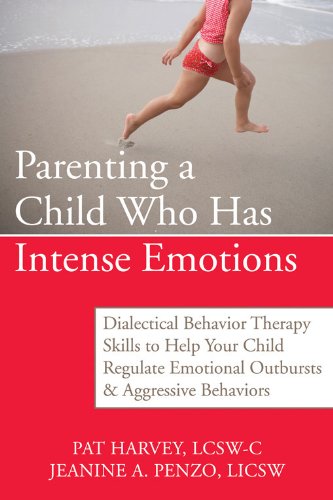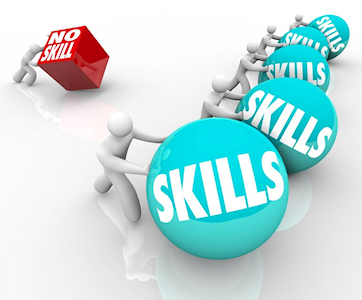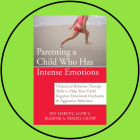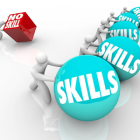Tag Archives:CONFLICT RESOLUTION SKILLS
WHYY’s Radio Times: How to Have Civil Conversations in a Polarized World share
 I just finished listening to a (pre-Thanksgiving) podcast about having civilized political conversations with other people. Most of the episode is spent interviewing author, Jason Jay, who touches on a lot of things that I have found to be helpful, some of which have taken me 50 years to figure out! I actually recommend starting to listen mid-show at the 29:28 point for about 3 minutes and then jump back to the beginning with that perspective in mind. The whole episode is valuable but I think it helps to start with their discussion about what Jay recommends as the goal when having a challenging conversation from differing viewpoints (Hint: It’s not to emerge victorious) and then talk about everything else.
I just finished listening to a (pre-Thanksgiving) podcast about having civilized political conversations with other people. Most of the episode is spent interviewing author, Jason Jay, who touches on a lot of things that I have found to be helpful, some of which have taken me 50 years to figure out! I actually recommend starting to listen mid-show at the 29:28 point for about 3 minutes and then jump back to the beginning with that perspective in mind. The whole episode is valuable but I think it helps to start with their discussion about what Jay recommends as the goal when having a challenging conversation from differing viewpoints (Hint: It’s not to emerge victorious) and then talk about everything else.
It’s also interesting to me that the interviewer, Mary Cummings-Jordan, appears to struggle herself at some times in the podcast with stepping outside of the notion that conversations like these are battles to be won. And then, when journalist Rachel Swarns joins the conversation, the topic shifts to Swarns and Jay giving some tips about being true to yourself when someone says something offensive while not causing World War III.
The main points I hope people take away from this in a way that is meaningful and understandable are:
- The goal is not to change a person’s mind, but rather to: learn how to better understand the other person and how they came to the opinions that they currently have; share a different viewpoint from your perspective; and, if you’re on a roll, try to find areas of common ground where both people’s needs can be met…at least to a degree.
- Ask questions rather than trying to make sure to hit all of the “standard” talking points on the issue being discussed.
- Don’t attack. “When I hear _________ , I think…” “I feel…” “I want…”
- Respond to offensive statements by illustrating in a meaningful, calm, human/personal way why that statement is hurtful to you or someone that you know or care about.
And just to be clear…this is HARD!! It is a skill that takes practice, a lot of patience, and that requires that you can tolerate feeling vulnerable and anxious, especially as you are trying to grow these skills. When you are so used to talking about contentious, political issues in an argumentative way, it’s incredibly hard to not take the bait that others might dangle in front of you. Take a break if things get too heated, remembering that people stop actively listening when they become defensive, and find a way to lighten the mood. And the next time you decide to dive into a conversation, it will probably feel a little bit easier.
How to have civil conversations in a polarized world : Radio Times : Politics & Policy : WHYY
The latest news and information from the world’s most respected news source. BBC World Service delivers up-to-the-minute news, expert analysis, commentary, features and interviews. Air Date: November 20, 2018 12:00 am Listen 49:00 Guests: Jason Jay, Rachel Swarns As Americans sit down to feast with family and friends this week and share food around the table, many people plan to avoid any talk of politics or social issues.
Parenting a Child Who Has Intense Emotions: Dialectical Behavior Therapy Skills to Help Your Child Regulate Emotional Outbursts and Aggressive Behaviors by Pat Harvey, ACSW, LCSW-C share
 A truly insightful book that helps parents to step out of the power struggles that we adults can so easily find ourselves in with children and teens who experience emotions in a big way. Kids who seem to blow-up over nothing, struggle with transitions, seem to be constantly challenging adult authority, or be intent on badgering you into submission for whatever they want are actually really struggling. They don’t like feeling out of control like this but don’t yet have the skills they need to calm themselves down, to soothe themselves, and to handle things in a calmer manner.
A truly insightful book that helps parents to step out of the power struggles that we adults can so easily find ourselves in with children and teens who experience emotions in a big way. Kids who seem to blow-up over nothing, struggle with transitions, seem to be constantly challenging adult authority, or be intent on badgering you into submission for whatever they want are actually really struggling. They don’t like feeling out of control like this but don’t yet have the skills they need to calm themselves down, to soothe themselves, and to handle things in a calmer manner.
Often our first impulse as parent is to come down harder on these kids, grappling with the feeling that we have lost control of a situation that we “should” be in control of and trying to re-establish a sense authority. We put a great deal of pressure on ourselves to fix the problem and this stress makes us even more likely to lose our temper. We find ourselves reacting in ways that we never would have imagined back in the days when having a child was a dream and not yet reality. We wonder, “How have I come to be a person who yells, physically intimidates, or even possibly gets into physical altercations with my kid?” We think, “I have punished them with every consequence I can think of and nothing works!” We worry, “How is all of this conflict affecting our other children?” and “What will become of my child if we don’t get this turned around?”
The reality is that these kids respond VERY poorly to attempts to dominate them and punish them into compliance and it only serves to escalate the arguments and tension in the household while, at the same time, make them feel worse about themselves. Secondary problems can crop up like depression and suicidal thoughts.
What else is there to do? Based firmly in scientific research, this book helps parents understand the emotional struggles that kids like this are grappling with and how miserable they really feel when their emotions are out of control. It helps you find ways to show your child or teen that you love them, understand that they are struggling, and gradually teach them coping strategies that can help them to regulate their emotions. Additionally, it helps parents to set limits and expectations that are realistic and even therapeutic. If you have been reading this review and have been brought to tears by how much this describes your life with your child, I truly can’t recommend this book enough.
I would also like to add a message of hope. Kids and adults who tend to experience their emotions very intensely also have many strengths and can “use their powers for good.” These are folks who are passionate and tenacious. They are artistic. They feel the pain of other’s deeply and care about making positive changes in the world. When they learn to harness their feelings constructively and focus their energies on projects that interest them, the things that they are capable of is incredible! Looking through the “lens” of the medical model, labels/diagnoses that are often connected to these types of kids are: ADHD, ODD, Asperger’s, Bi-Polar Disorder, and Borderline Personality Disorder. I caution you to only lean on labels like this for what they can do for you. Often labels like this cause harm because some people take it to mean that something is “wrong” with them; that they are “broken.” I don’t think this is a helpful or healthy perspective. You can read more of my thoughts on this here.
So, if you are struggling with a child who has intense emotions, get this book. Also, I urge you to strongly consider finding a therapist (or two) who has experience working with children/teens AND who has experience using the theoretical framework this book is based on, DBT (Dialectical Behavior Therapy). This is a tough road to go alone for both the child and the parent. If you are at your wit’s end, it can also help a great deal for you (together with other parental figures in the home) to have your own therapist to guide you though the process, helping to shift your approach with your child to one that teaches emotion regulation instead of constantly doing battle with them. Ideally, signing release forms so the two therapists can coordinate the work they do with your family will help the process to be as effective and efficient as possible.
PS – You may also want to check out this video, Teen extremes: Regulating Moods in the Age of Anxiety, as it based on the DBT concepts described in the book and presented by Dr. Marsha Linehan, the actual psychologist who developed DBT.
* I don’t make any money from the books that I recommend. My reviews are solely based on wanting to let people know what’s out there and could be helpful to them.
Emotionally Intelligent Life Skills share
 There are several types of skills that are worth working on because, as we all get better at them, they help us have less conflict and difficulty in our lives and increase the possibility that other people understand our thoughts and feelings. And the more often that happens, the more likely we are to experience our day to day life as happy. For example, Executive Functioning Skills help us to be organized so that we take care of the things we need to and help us to feel more responsible and in control of our lives. Mindfulness Skills help us to find pleasures in the small moments in life that are happening around us all of the time. They help us worry less and be happy more. Relaxation Skills, mindfulness being one of them, help us to calm anger and reduce panic and worry. Social Skills help us to work well in groups, create/deepen/maintain friendships and loving relationships, and increase the chances of other people having good/comfortable thoughts about us. Anger Management and Conflict Resolution Skills help us to not let our emotions create bigger problems for us than we already have and help us to solve problems in ways that encourage people to have good/comfortable thoughts about us.
There are several types of skills that are worth working on because, as we all get better at them, they help us have less conflict and difficulty in our lives and increase the possibility that other people understand our thoughts and feelings. And the more often that happens, the more likely we are to experience our day to day life as happy. For example, Executive Functioning Skills help us to be organized so that we take care of the things we need to and help us to feel more responsible and in control of our lives. Mindfulness Skills help us to find pleasures in the small moments in life that are happening around us all of the time. They help us worry less and be happy more. Relaxation Skills, mindfulness being one of them, help us to calm anger and reduce panic and worry. Social Skills help us to work well in groups, create/deepen/maintain friendships and loving relationships, and increase the chances of other people having good/comfortable thoughts about us. Anger Management and Conflict Resolution Skills help us to not let our emotions create bigger problems for us than we already have and help us to solve problems in ways that encourage people to have good/comfortable thoughts about us.
These are all skills that we start to learn as kids but that we continue to hone as adults. And, just like working out makes your muscles strong and makes it easier to do physical things , the more we practice these valuable life skills the stronger our life skills become and the easier it is to positively manage emotional things. Study after study shows that creating habits by practicing something over and over again reinforces neural pathways in our brains and results in “habits.” This means that the more we practice and flex our emotional muscles, the easier these skills become for us. So get out there and learn some new skills or just keep practicing the ones that you have already learned about. It pays off!!



